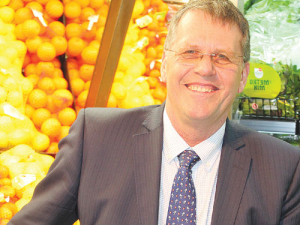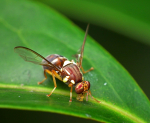New Zealand has no food security policy and will be short of some foods within five years, says a Horticulture NZ report on domestic vegetable production.
“We complacently believe we will always be able to sustainably grow enough food to feed ourselves and contribute to the country’s economic wellbeing,” the report says.
“However with prime production land being lost, climate change, competition for water resources, extreme weather events and the constant threat of pests and disease we must turn our minds to food security issues for the future of NZ’s domestic production.”
While most of the vegetables mentioned in the report are sold only domestically, some such as carrots, onions and potatoes, are exported.
“We may consider it a moral obligation for growers to ‘feed NZ first’, but they are running a business that is market driven and [feeding NZ first may not always happen] depending on supply and demand pressures internationally,” the report points out.
“Developing a food security policy requires us to take a wider perspective on the food chain.” Growers hold responsibility for the sustainability of the environment and for year-long production for the domestic market.
Region-by-region supply of produce is not how it works, says Hort NZ. Instead, ensuring abundant fresh vegetables and fruit at reasonable prices “is a national issue that needs to be addressed by central Government”.
“As the impacts of climate change and more adverse weather make growing more challenging, we also need to ensure the most appropriate land is used.”
The report says with NZ’s population exceeding five million by 2020 (annual growth is 1.5 - 2%), domestic food supply will not be able to match consumption. On current consumption and production levels, food shortages can be expected in the next five years.
“This further highlights the importance of food security, land production and future-proofing the availability of resources to supply our growing population.”
Horticulture NZ president Julian Raine says in the report “a perfect storm is brewing for NZ’s supply of healthy food”.
“Prime fruit and vegetable growing land is being squeezed by rapid growth in towns and cities and high demand for new housing. Emotional battles over water have the potential to leave growers high and dry. ”
Raine says it is time to take stock. “There is an assumption that NZ is a land of plenty and we will always have enough locally grown food... supplemented by imported food where there is demand.
“But things are changing fast. We need to look closely at our domestic food supply and be sure that town, city and regional planning decisions are seen in the context of impacting the whole NZ food supply.”



















